I am four and something is horribly wrong. My mother is on the floor, bleeding, and I stumble over to her, alarmed, frightened, and wanting to make things right again. A moment earlier, she carried a tray of breakfast food up a couple of steps and climbed over a window ledge that led to our tiny Manhattan brownstone terrace, but an improvised and poorly installed metal channel catches her foot and she falls with a sickening thud, gashing her calf on the steel. Seated at the table between my two older sisters, my father watches imperiously and makes no attempt to help her. As I struggle to lift her head, Mother looks up at me through welling tears and whispers, “You’re the only one who helped me,” then picks herself up while glaring at my father.
More often than not, a boy raised in violence is inclined to replicate that environment. But my mother often cautioned me, “Your father is a good example of what not to be,” and I decided even at a young age and in spite of his charisma and manipulative strength to be more like her than him. None of us three children had middle names, as he had determined at our birth to deny us what he believed was anachronistic, but at age eight, my revenge for one of his arbitrary beatings was to take a middle name of my own selection. I chose my mother’s maiden name, a secret, small way to thank her for her sacrifices.
Yet the soul within cried out for attention to the strife we endured under the powerful hands of my father. I was the Problem Child who teachers would evict from the class, the boy who destroyed even his favorite stuffed animal toys, who started schoolyard fights, who stole. The seductive siren call of antisocial behavior was echoed in both of my sisters, occasional partners in shoplifting and other petty crimes, and only faded when my mother saved up enough from her second job to enroll us in a better school. Here, at age ten, my combative nature was slowly turned away from angry display to intellectual reverie.

But I didn’t begin addressing the lonely sojourn of my soul until I volunteered at age sixteen to go with a group of volunteers to Central America to work on a health project targeting some of the world’s most impoverished. In Nicaragua we were paired up and asked to put our months of medical, cultural and language training toward the effort of vaccinating infants and teaching dental care to children, in villages so remote that it often took day-long mule rides to arrive. In that summer, away from all the distractions and disappointments of home, I slowly grew to understand myself. Each night, as we scraped the thick mud from our boots, I removed some of my inner grief and guilt, as well.
Interspersed with my university studies, I continued my summer volunteer work in Central America. I thrived on helping the poorest and most wretched, but the opportunity to work as a group during the training phase, and to live with a teammate in a partnership for good was my most secret tonic. For the first time, I felt able to have a social circle of friends and companions. I now knew support and camaraderie and I felt I could truly trust and confide. Back at college, the social skills I had never honed in youth (I could never imagine inviting a friend over to my angry house) emerged and matured.
Through scholastic and extracurricular pursuits, and as my vision widened, I began to get a perspective on the world and the suffering so many endure. In South Africa, a deeply entrenched, racist approach by the empowered threatened to explode into unprecedented carnage. The Middle East bore scars that were frequently scourged. Latin America was a study of chronic instability, shocking poverty and inequality. My forays into the study of history revealed that so-called innocent times were also a den of torment for serfs, natives, besieged and exploited. Then, just before I was to complete my undergraduate studies, I uncovered one more facet of my father’s misguided and tortured soul. And it allowed me a deeper insight into history’s deepest humanitarian abyss, the Jewish Holocaust.
Quite by accident, one of my sisters discovered that my father had changed his surname at around age twenty from a Jewish-sounding one to a typically English one. Soon confronted by us children, he claimed it was to avoid dealing with the anti-Semitism prevalent in the 1930s and admitted that he had planned to tell us eventually, albeit from his deathbed. We learned that he had even deluded my mother for many years about his Jewish heritage, and that she never dared to tell her own parents, devout adherents to the Church of Christ. It wasn’t until a few years passed that acknowledged I couldn’t condemn him for his original decision to disguise his culture and identity, since I didn’t truly understand the challenges he faced. But I quickly realized that by exploring the plight of the early 20th Century European Jew I would confront the viscera of Hell.
From reading books such as Abram Sachar’s A History of The Jews, and seeing films like Sidney Lumett’s, “The Pawnbroker,” or Lina Wertmülers “Seven Beauties,” I began to absorb the milieu from the perspective of my Jewish heritage, and I was left with a deep and enduring sadness. I also wanted to understand the wonderful religious traditions my father had abandoned, and periodically worshiped at local synagogues and temples. What a rich legacy I uncovered! But the strongest emotions I felt led to a grim determination to ensure that none ahead should ever again feel the millennia of suffering, humiliation and pain endured by history’s Jews. My mission only deepened as I learned of the relatives I never knew who died in the Nazi concentration camps.
The funny thing about suffering is that it affects people in unexpected ways. In a nation such as Israel, it might foster a determined rise to military invincibility, but for many individuals, suffering leads to a turning away from the past. Most warriors are reluctant to share the details of any savagery in which they participated; few slaves would write memoirs, even if they could. I have learned in life that it is only the most exceptional person who can achieve the summit of emotional strength while wielding the banner of pain; the vast majority litter the foothills of despair and disrepair. For every Supreme Court Judge Clarence Thomas, who emerged triumphant from a childhood of poverty and segregation in Pinpoint, Georgia, there are thousands of black Americans who found an equally human but less rewarding course. For each Weimar Germany Jewish ghetto family victimized by Nazi prejudice and pogroms yet somehow proudly clutching on to its spiritual identity, there were those members who felt in their hearts that they might someday pursue a different path around the sting of humiliation. To say that the latter groups are lesser is to refute the psychological complexities of the human mind. To judge those who forge a refuge as unsuccessful or weak is to limit the human experience and deny compassion.
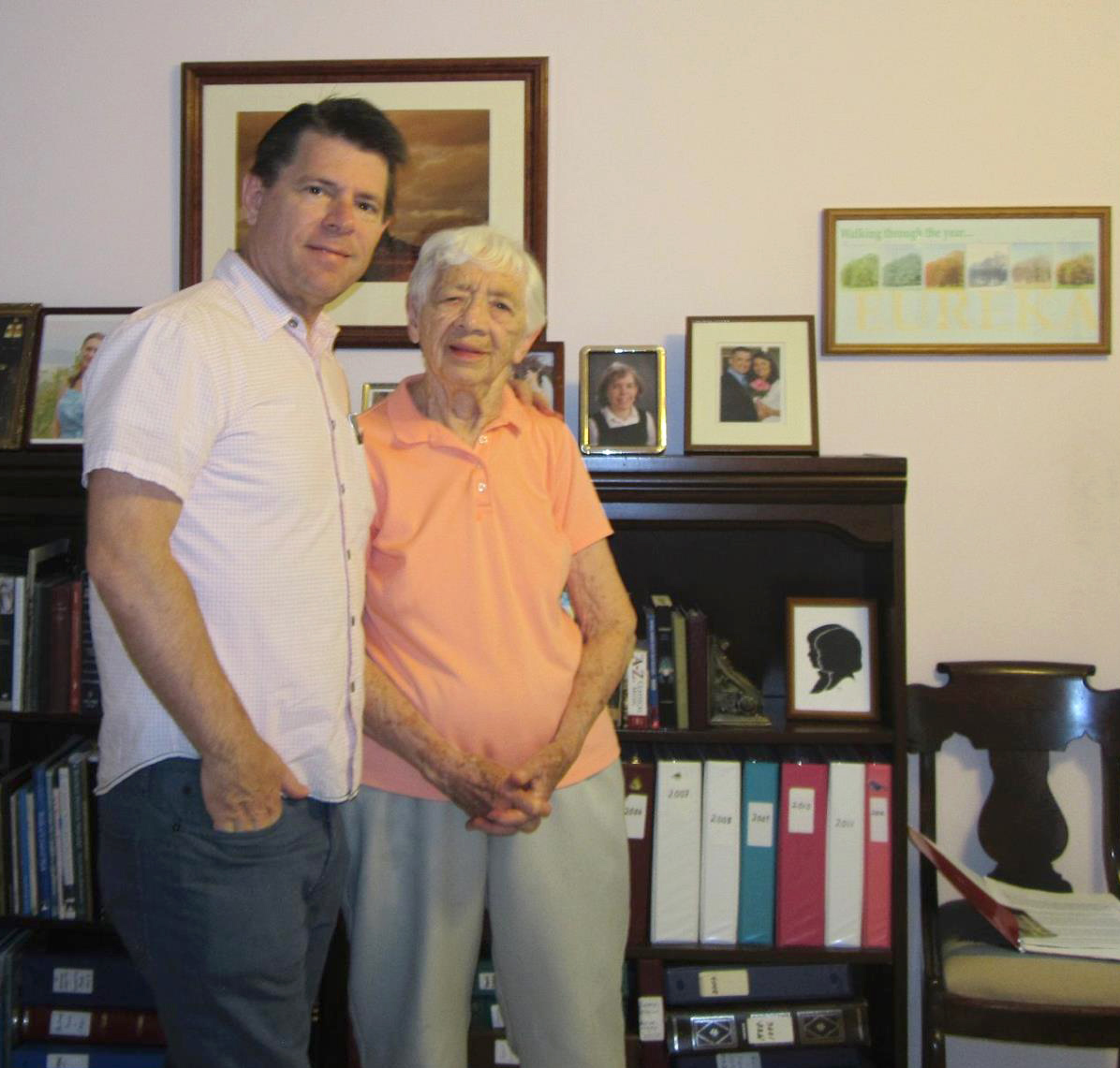
As an adult, I wrote a poem for my mother and proudly presented it to her one Mother’s Day. Entitled “Such Sacrifices,” it opens, “On a heaving ship, Across a raging sea; You balanced your charge: Two sisters and me, Unable to flee.” It summarized my perspective of some of the difficult passages in my childhood journey, yet ended with lines praising her strength, heroic efforts and success: “Blessed Love we children partake, Now pass down to ours this beauty did you make.” I should have anticipated, however, that she wouldn’t notice the optimistic and laudatory final verses, for she later told me that she objected to the poem’s frank visualizations of her traumatic times, and the implication that we were at all dysfunctional in that period. I subsequently concluded that some–perhaps most–people would truly wish to move on and just “forget about it”. In spite of the common proscriptions to “cover things up,” often in humanity a bandage of selective amnesia may forever function to disguise the deepest suffering.
Empowered with new understandings from attempts at healing such as with the poem to my mother, I continue to take it as my personal mission to uncover, analyze and remedy suffering whenever possible. This approach has taken me to both conventional and unpredictable destinations, and with various levels of success and failure. Flush with the success as a member of the student government in getting my alma mater to divest from the racist South African regime in the late ‘70s, I returned to Miami, where my mother now lived alone, and joined the Urban League and NAACP, to participate in some local endeavors designed to reduce the tensions between the many newly arrived Cuban expatriates and the marginalized blacks who consequently saw their levels of unemployment swell. Now in a leadership role, I continued to work on behalf of the organization which served Latin America on missions of health and aid, Amigos de Las Americas.
I also reckoned with a new understanding of how our human species causes unnecessary suffering upon the environment and to other animals. In reading moral philosopher Peter Singer’s Animal Liberation, a seminal study of hidden suffering, I grew to appreciate how much I could personally do to reduce or remove my connection with the pain that had no voice but which was screaming from behind the walls of today’s factory farms, our medical research labs, our fashion industry. I became a vegetarian and began to turn my attentions to improving the welfare of animals, and other ethical campaigns. Famed monk Thich Nhat Hahn distills the essence of this embracing approach: “If you cannot love man, animals, and plants, I doubt that you can love God.”[i] My unfolding exploration into the psychology and life decisions of my parents and people like them has led to a greater understanding of Love, and the infinite faces it wears. I interpret the common goal of Mother Theresa, Martin Luther King, Ghandi, St. Francis, Jesus and the plentiful host of enlightened visitors to our sphere is to draw closer to God by widening our embraces.
After I moved to Atlanta in the mid ‘80s, my life took on a more traditional guise, as I soon married, embarked upon the corporate career path, became a father and a Unitarian, and even enlisted in the U.S. Army Reserves for a four-year stint. Raising my beautiful daughter as a vegetarian and humanitarian was not difficult and she has grown into a wonderful and strong young lady, full of enormous talent and energy for her own social causes.

Throughout these years, however, my desire to keep focused on my purpose of preventing suffering led me to explore one of the root causes of global trauma, and to turn with renewed vigor to my investigations into religion. Although I had visited places of spirituality in the Americas, Africa and Europe, it was a trip to India, representing the Rotary Club Foundation, that impacted me most deeply. There, my bare feet absorbed tremendous, healing energy from the various visited temples in which I meditated for two months, and my mind gratefully inhaled the intellectual contemplations of my new friends, reflecting their ancient religion and deeply rooted spirituality.
Upon my return, I briefly entertained a political career, but a more impactful decision was to join a new national interfaith organization that had been forged as a counter to the rise of religious extremism and to reduce the harm caused by judgementalism and prejudice. My personal research led me to regular and faithful attendance at a local evangelical Christian church service for half a year and to join 60,000 other men at a weekend-long “Promise Keepers” revival. Although I could never endorse their exclusivist world view, to my surprise, over time I discovered an understanding, even appreciation, for their cause. I learned of the potent inner peace that drives people who believe they are the Chosen Ones, that they alone will secure salvation. I learned this and more, through seeking and receiving the deep emotional release that comes from feeling forgiven for any and all sins. My release was dramatic, for I had unearthed so many sadnesses and failures of childhood. For the first time, I learned to cry to a greater power.
When I was asked to lead the local chapter of the interfaith organization, I took pride in growing the chapter in size and scope. Through this work in recent years, I have had the unique opportunity to weekly visit and pray with representatives of virtually every house of worship in the area, from Hindu to Tao to Catholic. In each, I have beheld with awe the magical strength uplifting the congregation, and furthered my conviction that the human spirit has powerful, universal attributes which can be either scalpels of healing or swords of harm.
My goal has also been to further communications between opposing, even hostile sides, for that has proven to reduce prejudice and its progeny of hatred. One of my favorite examples is the Seeds of Peace International summer camp, where Jewish and Palestinian teenagers learn to play with and eventually trust in each other, returning to their neighborhoods with a bond that fosters peace; if only this and similar programs were more common! In the words of one young participant, “Lasting peace can only emerge from relationships between people themselves.”[ii] Programs like this work even when the ancient hatreds of parents threaten to stain a new generation, because they allow surrogate role models to foster a new paradigm for understanding. As with my mother’s admonition, they often teach youth valuable lessons of what not to be.
Even in these recent days, when the tongue of terror has freshly seared us all, there is yet an opportunity to gradually ascend the steps of understanding, to reduce tension by stemming fear and false pride, to advance the proven techniques of communication and intercultural study. The process of reflecting on personal pain is often–but not always–key to any healing and progress. Yet it’s a process that should be undertaken with an appreciation of the variations in human personality; what may seem an insignificant episode in one young life might register as highly charged to another. For me, the goal of unearthing and examining the seeds of suffering is so they may forevermore remain unplanted.
On a greater scale, an ongoing and critical self-examination of our society’s historical successes and failures is equally vital. As with once-traumatized individuals like me, even a collective civilization can choose to regroup and recover the flailing harness of peace or continue as hapless passengers on our ride to absolute destruction.
What causes some to witness tragedy and suffering and to turn away? What causes others to reach out and transform seeds of suffering into seeds of peace, or to lift up the degraded and sacrifice in the act of Love? How might we foster a climate of empathy and compassion? These are questions that were borne of youthful anguish and but today amplify my ambitions and sense of purpose. For me, the answer points to a proud, yet vastly unmapped world. The goal is both quixotic and urgent: to make Heaven less remote, for all those who know too well the Hell of Earth.
[i] Hahn, Thich Nhat: Going Home–Jesus and Buddha as Brothers; Riverhead Books, 1999.
[ii] The Olive Branch Magazine, publication of Seeds of Peace Program; Volume 6, Issue 2, 2003.









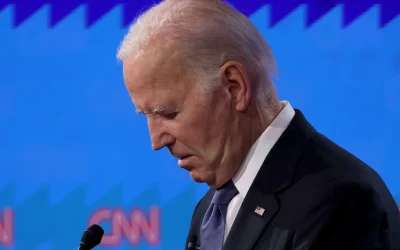
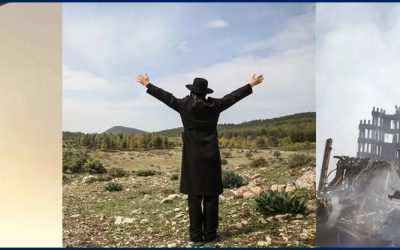
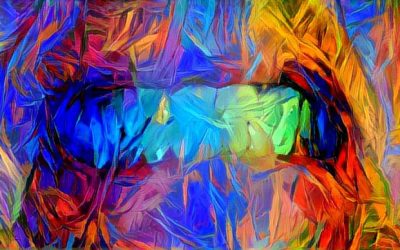
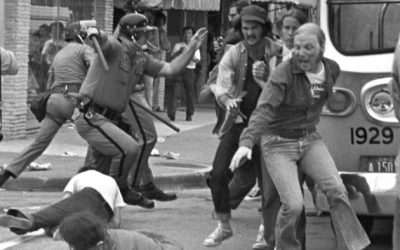
0 Comments